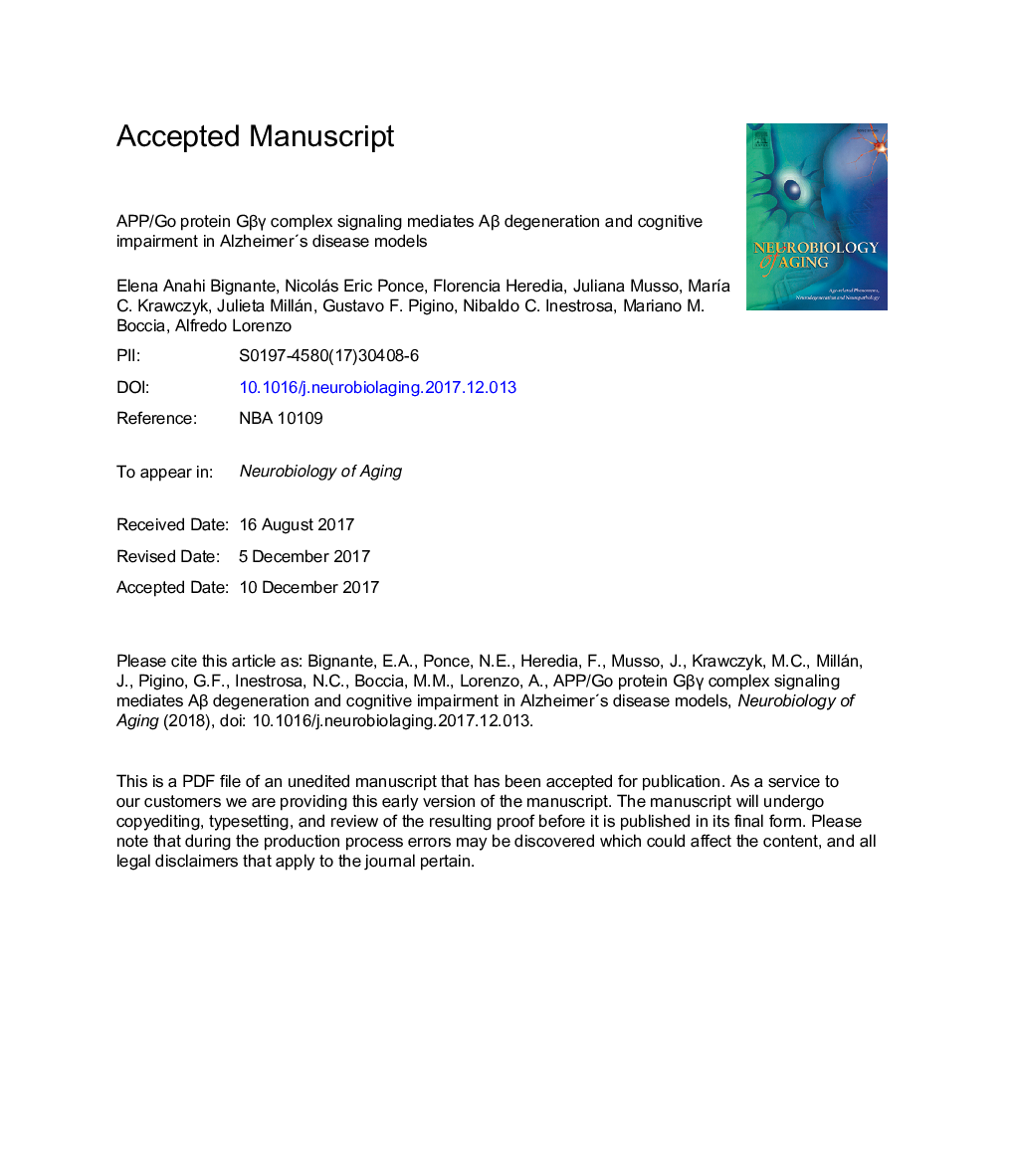| Article ID | Journal | Published Year | Pages | File Type |
|---|---|---|---|---|
| 6802996 | Neurobiology of Aging | 2018 | 47 Pages |
Abstract
Deposition of amyloid-β (Aβ), the proteolytic product of the amyloid precursor protein (APP), might cause neurodegeneration and cognitive decline in Alzheimer's disease (AD). However, the direct involvement of APP in the mechanism of Aβ-induced degeneration in AD remains on debate. Here, we analyzed the interaction of APP with heterotrimeric Go protein in primary hippocampal cultures and found that Aβ deposition dramatically enhanced APP-Go protein interaction in dystrophic neurites. APP overexpression rendered neurons vulnerable to Aβ toxicity by a mechanism that required Go-Gβγ complex signaling and p38-mitogen-activated protein kinase activation. Gallein, a selective pharmacological inhibitor of Gβγ complex, inhibited Aβ-induced dendritic and axonal dystrophy, abnormal tau phosphorylation, synaptic loss, and neuronal cell death in hippocampal neurons expressing endogenous protein levels. In the 3xTg-AD mice, intrahippocampal application of gallein reversed memory impairment associated with early Aβ pathology. Our data provide further evidence for the involvement of APP/Go protein in Aβ-induced degeneration and reveal that Gβγ complex is a signaling target potentially relevant for developing therapies for halting Aβ degeneration in AD.
Related Topics
Life Sciences
Biochemistry, Genetics and Molecular Biology
Ageing
Authors
Elena Anahi Bignante, Nicolás Eric Ponce, Florencia Heredia, Juliana Musso, MarÃa C. Krawczyk, Julieta Millán, Gustavo F. Pigino, Nibaldo C. Inestrosa, Mariano M. Boccia, Alfredo Lorenzo,
